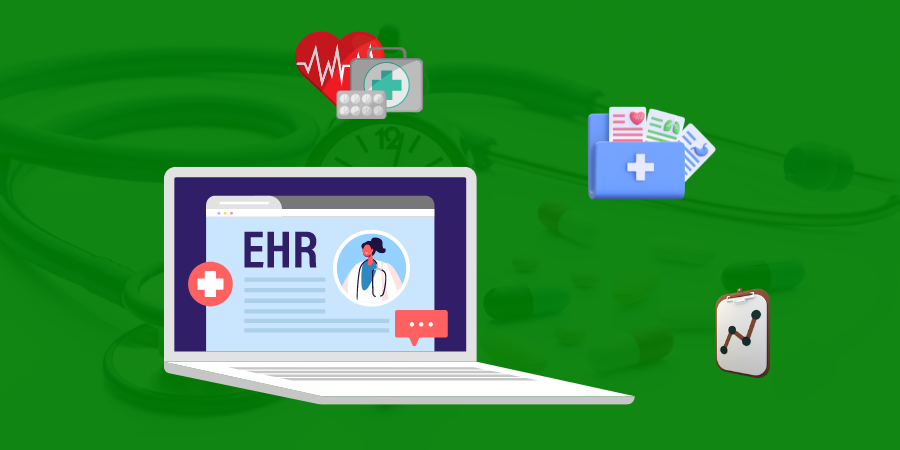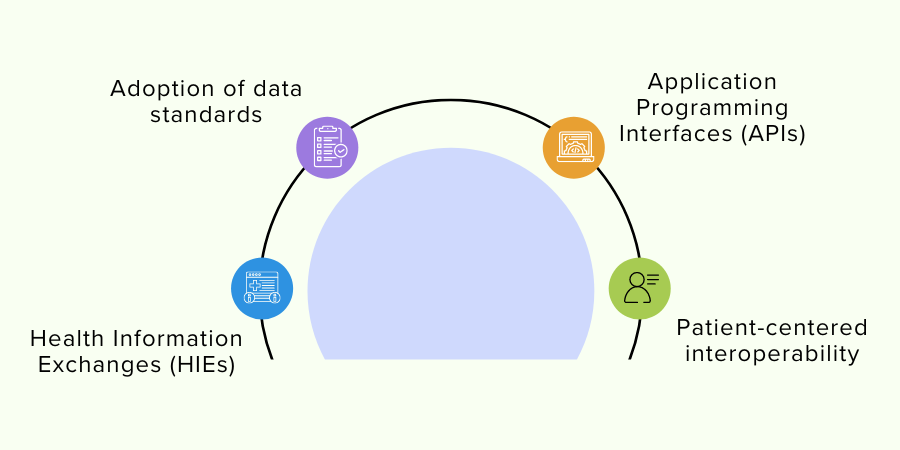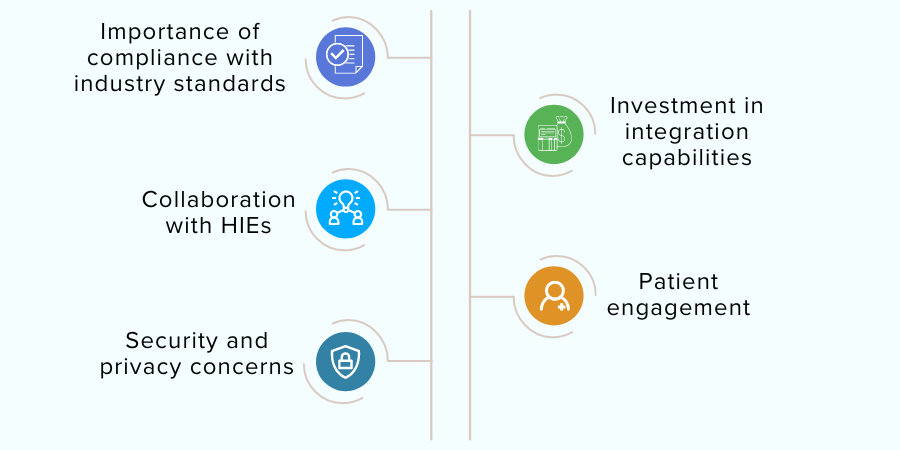
Interoperability of EHR refers to the ability of different Electronic Health Record (EHR) systems, healthcare IT applications, and other related systems to communicate, exchange, and interpret patient data seamlessly and accurately. The goal of interoperability is to improve the quality and efficiency of patient care, facilitate coordination between healthcare providers, and reduce medical errors.

Let us understand the current trends in EHR interoperability:
- Adoption of Data Standards: Industry standards like Health Level Seven International (HL7) and Fast Healthcare Interoperability Resources (FHIR) have been developed to facilitate interoperability between EHR systems. These standards provide a common framework for data exchange, ensuring that patient information can be accurately shared and understood across different systems. More on this may be found in the boxed note at the end of the article.
- Health Information Exchanges (HIEs): HIEs are networks that enable healthcare providers to exchange patient data electronically, promoting better care coordination and reducing the need for duplicate tests and procedures. HIEs can be regional, state, or nationwide, and can either be public or private. Many countries have implemented national HIE initiatives to improve interoperability.
- Application Programming Interfaces (APIs): APIs enable different healthcare applications to interact and exchange data with each other. The use of APIs has become increasingly popular in EHR systems, allowing healthcare providers to extend the functionality of their EHRs and integrate them with third-party applications like telehealth platforms, remote patient monitoring systems, and clinical decision support tools.
- Patient-centered Interoperability: There's a growing focus on empowering patients to access and control their health data. Patient portals, personal health records, and mobile apps are being developed to provide patients with access to their medical records, enabling them to share their data with other healthcare providers and better manage their health.

What business technologists or business managers should know about EHR interoperability:
- Importance of Compliance with Industry Standards: To ensure seamless interoperability, EHR systems should be developed and maintained in compliance with industry standards like HL7 and FHIR. Business managers should prioritize the adoption of these standards and stay informed about any updates or revisions.
- Investment in Integration Capabilities: Business managers should invest in integration capabilities that enable their EHR system to communicate with other healthcare IT applications, such as practice management systems, laboratory information systems, and billing systems. This can help improve the overall efficiency of healthcare operations.
- Collaboration with HIEs: Participating in HIEs can significantly improve the interoperability of an EHR system, enabling healthcare providers to access a more comprehensive view of a patient's medical history. Business managers should consider joining HIEs in their region or country.
- Patient Engagement: Business managers should focus on implementing patient-centered interoperability solutions, such as patient portals and mobile apps, to empower patients and improve their healthcare experience. This can lead to better patient satisfaction and loyalty.
- Security and Privacy Concerns: Interoperability increases the flow of sensitive patient data between different systems, raising concerns about data security and privacy. Business managers should ensure that their EHR systems have robust security measures in place, such as encryption, access control, and auditing, to protect patient data and maintain compliance with privacy regulations like HIPAA and GDPR.
By staying informed about current trends and best practices in EHR interoperability, business technologists and managers can make informed decisions to improve the effectiveness, efficiency, and security of their EHR systems, ultimately enhancing patient care and overall healthcare operations.
Health Level Seven International (HL7) is a set of standards for the exchange, integration, sharing, and retrieval of electronic health information among various healthcare systems. It is a not-for-profit organization that develops and maintains these standards to promote the interoperability of healthcare information systems and facilitate seamless communication between different healthcare providers, software applications, and devices. HL7 standards encompass a wide range of healthcare domains, including clinical, administrative, and financial data. The most widely known and used HL7 standard is the HL7 Version 2.x (V2) messaging standard. It provides a messaging framework that enables the exchange of clinical and administrative data in a standardized format, simplifying communication between different healthcare information systems.
Another significant HL7 standard is Fast Healthcare Interoperability Resources (FHIR), which is gaining traction as a modern, web-based approach to healthcare data exchange. FHIR leverages existing web technologies like RESTful APIs, XML, and JSON to simplify the exchange of healthcare information and improve interoperability.
In summary, HL7 is a set of standards that facilitate the efficient and secure exchange of electronic health information, promoting interoperability between healthcare systems and improving overall patient care.

 Batoi Corporate Office
Batoi Corporate Office